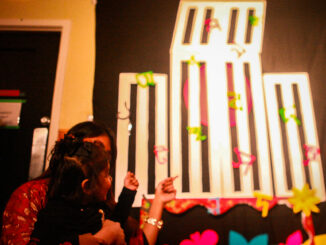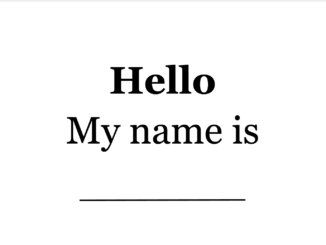Mi’kmaq people feel like they are disconnecting from their culture because they haven’t been able to gather for cultural events.

Sara-Dani Strickland
Kicker News
Natasha O’Brien started attending powwows when she was three years old. The powwow grounds are where O’Brien inherited most of her knowledge about her Mi’kmaq culture.
The Flat Bay powwow is an annual event where people, both Indigenous and non-Indigenous, come together to celebrate and learn about Mi’kmaq culture.
Since COVID-19 restrictions have postponed the west coast event since 2019, O’Brien is feeling more and more disconnected from the identity her ancestors fought hard to preserve.
“It feels like I’m slowly disconnecting from it (Mi’kmaq), like I’m losing it almost, and it’s sad,” O’Brien said.
O’Brien isn’t the only person missing the powwow. Since the first Flat Bay powwow in 2005, thousands of people have attended the event that wasn’t even meant to become an annual celebration.
“Ideally, the (plan) was that we’d have one (powwow) in Flat Bay the first year and then it would rotate to different communities,” said Arlene Blanchard-White, the chief of the Flat Bay powwow committee.
The decision to cancel the previous two powwows was not easy for Blanchard-White and the committee. To the Mi’kmaq community, the powwow is more than a chance for people to socialize. The powwow allows Mi’kmaq youth to experience their culture, says Blanchard-White.
“It’s so important to share ceremonies and traditions and passing it on to the next seven generations,” Blanchard-White said. “When you bring the youth in, that’s how they learn.”
Unlike other cultures, there are no written teachings of Mi’kmaq. The customs and traditions must be passed down through verbal teachings. O’Brien is worried about how the absence of the powwow could impact the knowledge Mi’kmaq youth have about their culture.
“You don’t read these traditions, you learn them from experience,” O’Brien said. “Youth are wanting to learn but they can’t because they cancelled the powwow.”
While the powwow is an important event, Blanchard-White doesn’t want the powwow to be the only thing people rely on to connect with their Mi’kmaq culture.
“Reach out to those who are still doing ceremonies, reach out to elders,” Blanchard-White said. “Don’t feel isolated and don’t be afraid to ask questions. We can still go out in the woods, we do ceremonies, there are beading circles. There are still ways to be included.”

Although there hasn’t been a powwow in two years, Blanchard-White and the rest of the powwow committee have been busy. The committee is planning for the return of the event this summer. The two-year hiatus allowed for upgrades to be made to the infrastructure on the grounds and the purchase of two new tipis.
Certain protocols such as social distancing will be put in place to adhere to COVID-19 guidelines. While it is important for cultural gatherings to take place, the main priority is keeping everyone safe.
“We try our best to make sure that whoever comes and joins in is accommodated and we can do what we can for all of our people so the powwow is the best that it can be,” said Blanchard-White.
The 2022 Flat Bay powwow is scheduled to go ahead July 8-10.




Be the first to comment